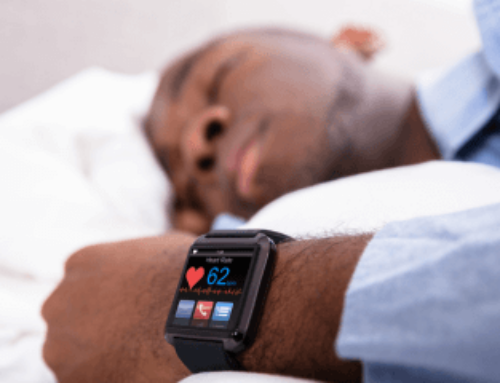DARIEN, IL – If your mind is racing when your head hits the pillow, you’re in good company. A new survey from the American Academy of Sleep Medicine reveals what’s currently weighing on Americans’ minds – job worries, finances, politics, and more – and it’s all adding up to some seriously restless nights.
According to the survey taken in June, financial worries emerged as the leading concern keeping Americans up at night, with more than three-fourths (78%) of respondents reporting that they have lost sleep over money matters. The worries don’t end there. Almost two thirds of Americans (65%) have lost sleep due to worries about work – on par with last year – and more than half (56%) have lost sleep due to worries about job security.
“In today’s high-stress world, it’s easy to become overwhelmed and many people carry their worries to bed with them,” said Dr. Andrew Spector, sleep medicine physician and AASM spokesperson. “This is magnified by a lifestyle where even a quick walk to the bathroom might include a check of the latest headlines or social media posts, leaving little time in the day other than bedtime for the mind to process all of these fears. When your stress level is too high when you go to bed, your sleep suffers, and that affects your physical and mental health.”
Political concerns are also on the rise, with 56% of respondents reporting they have lost sleep over the matter, up from 46% last year. Crime or violence is also top of mind, with 61% of respondents saying they’ve lost sleep due to those worries. Concerns over artificial intelligence and emerging technologies remain relatively low, with 39% of Americans having lost sleep from worrying about these developments – only slightly down from 41% in 2024.
“Sleep is essential to overall well-being, so it’s important to learn how to compartmentalize your worries to avoid having them interfere with your sleep,” said Spector. “The good news is that even small, consistent changes to your bedtime routine can lead to meaningful, long-term improvements.”
To help calm your mind and have a restful night of sleep, Spector offers the following tips:
- Unplug from the news and social media: Disconnect at least 60 minutes before bed to help get your mind off current events.
- Take time for yourself: Allow yourself worry time when you aren’t trying to sleep. Worries often come out at night when you haven’t had time to think them through during the day.
- Set reasonable expectations: Your mind will never shut off, so don’t expect it to be able to achieve mental silence. Gently steer unwanted thoughts toward more pleasant ones.
- Write things down: Keeping a pad and paper next to the bed can help you offload your thoughts and guarantee you won’t forget them by the next day.
- Get moving: Regular exercise improves mood and helps reduce stress but avoid vigorous exercise close to bedtime.
- Don’t let sleep be another worry: You’ve got enough on your mind already. If you add worrying about sleep itself, it’ll only get worse.
- Get support: If frequent worries continue to disrupt your sleep, consider talking to a therapist or counselor who can provide coping strategies and support.
“When we sleep better, we feel better — physically, mentally, and emotionally,” Spector added. “Getting quality sleep is one of the most powerful tools we have to build resilience and face life’s daily challenges.”
For more information, or to find a local AASM-accredited sleep center, please visit sleepeducation.org. View 2025 AASM Sleep Prioritization Survey results in the AASM newsroom.
###
About the Survey
The American Academy of Sleep Medicine commissioned an online survey of 2,007 adults in the U.S. The overall margin of error fell within +/- 2 percentage points with a confidence interval of 95 percent. Fieldwork took place between June 5-13, 2025 by Atomik Research, an independent market research agency.
About the American Academy of Sleep Medicine
Established in 1975, the AASM is a medical association that advances sleep care and enhances sleep health to improve lives. The AASM membership includes more than 9,500 physicians, scientists, and other health care professionals who help people who have sleep disorders. The AASM also accredits 2,300 sleep centers that are providing the highest quality of sleep care across the country.





